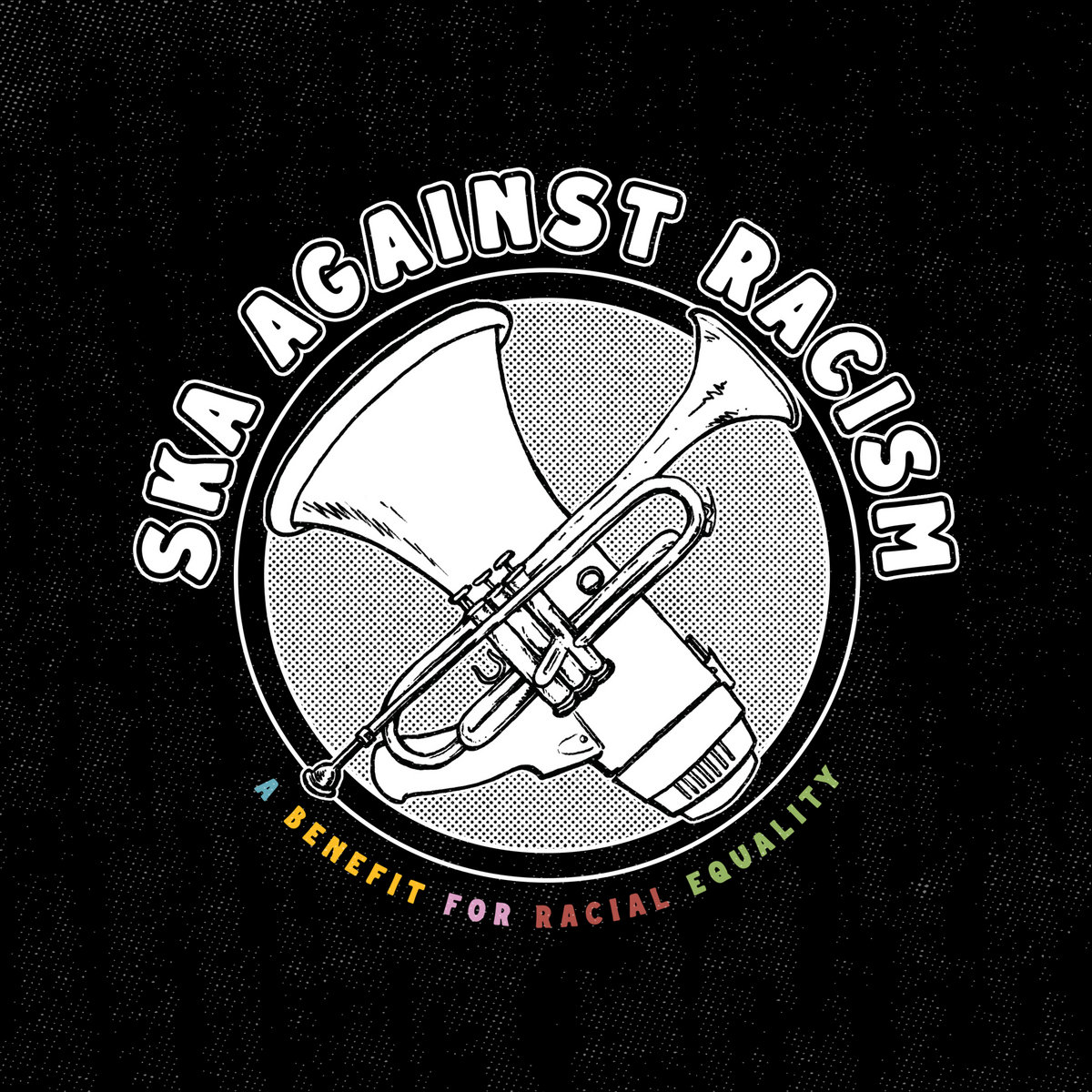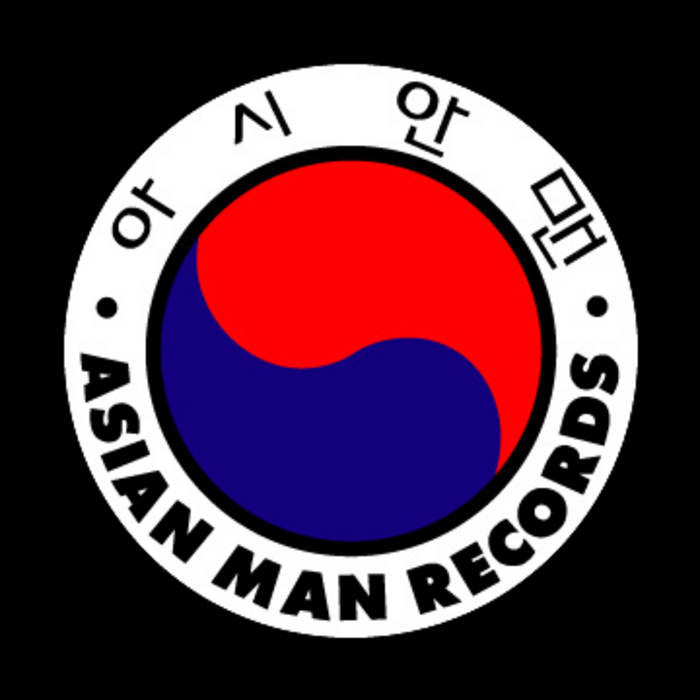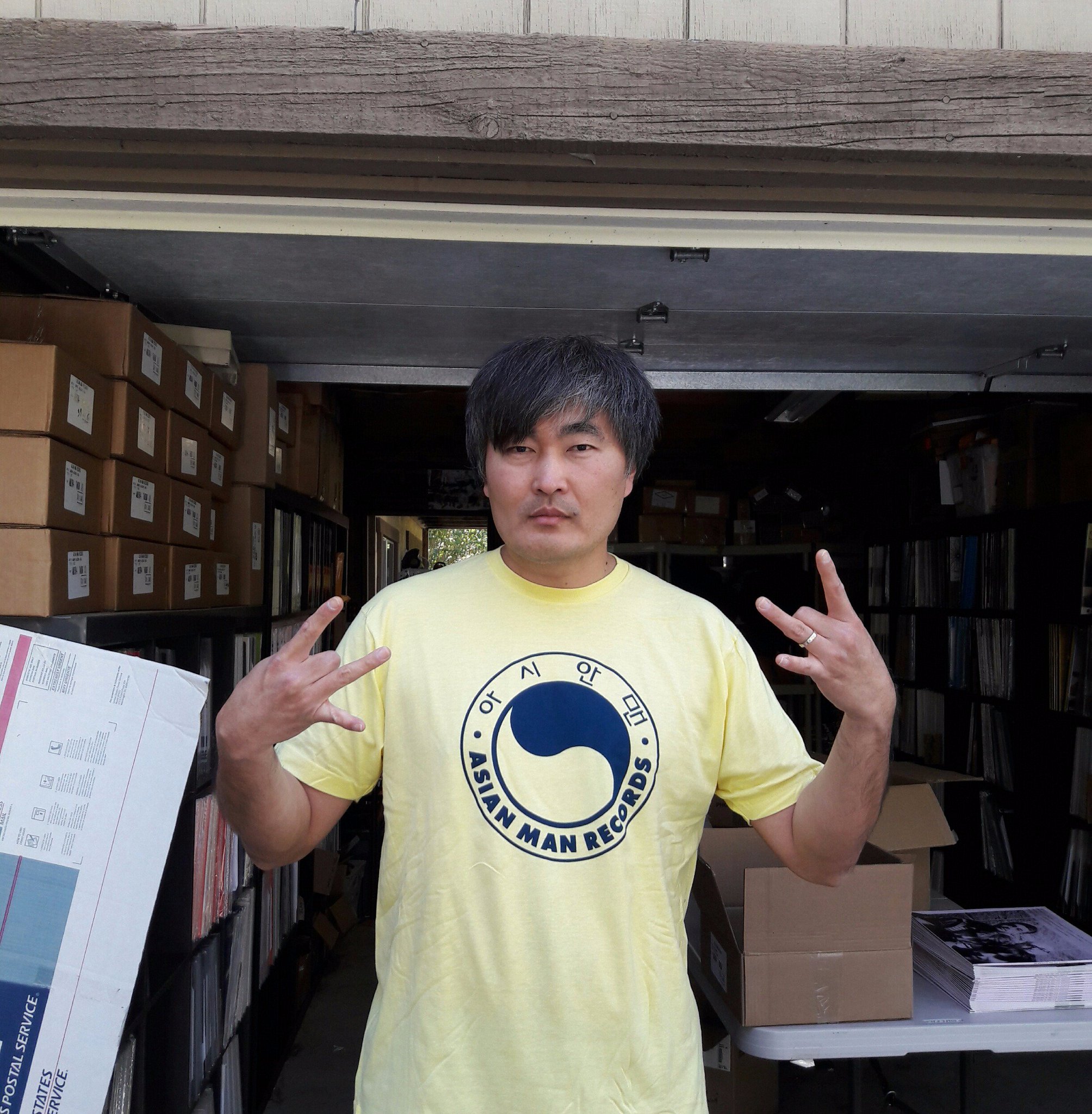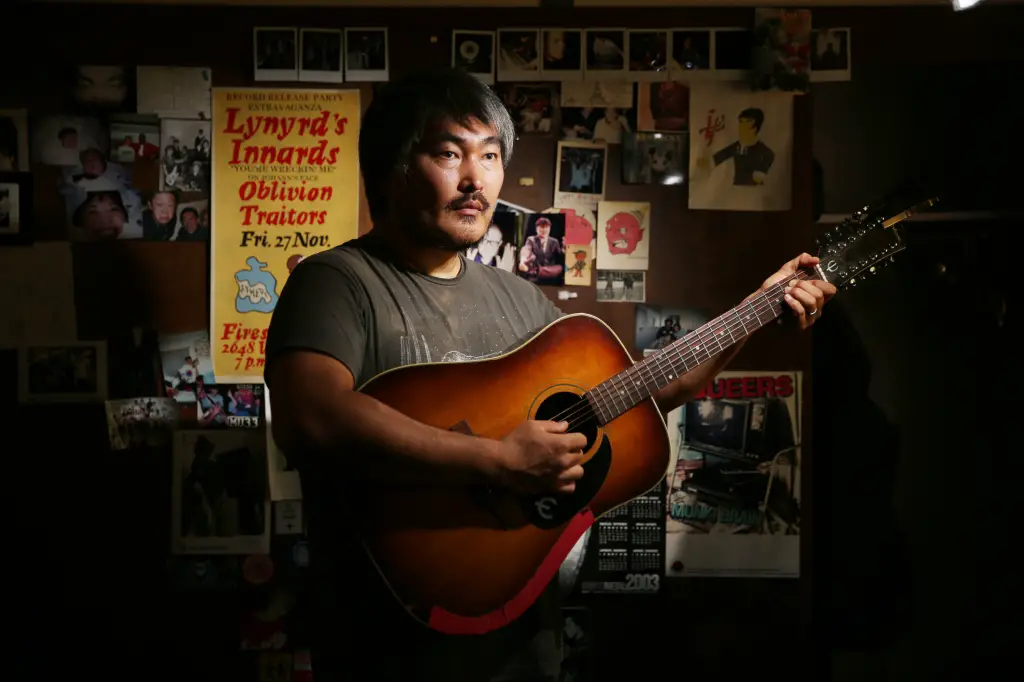All images courtesy of Mike Park/Asian Man Records
:format(jpeg):mode_rgb():quality(90)/discogs-images/A-447168-1596009667-7274.jpeg.jpg)
On the surface, it’s easy to feel as if we live in a cynical, harsh world, and perhaps we do. Still, there is a lot of good in this world, and the work that Mike Park is doing with Asian Man Records is a massive part of that, for me at least.
Mike has been in the Ska and Punk game for a long time, and over the years, he has been one of the leading voices in combatting racism and sexism in not only the music business but throughout the world in general. It’s important to understand, though, that Mike is only one person. It takes the voices of many to be heard honestly.
In addition to that, with his label, Asian Man Records (learn more here), Mike has signed and helped dozens of indie bands make their dreams come true, many of which have gone on to stardom within the genres of Punk and Ska music.
So, today I’ve got Mike Park with us for a chat. We talk about his introduction to the scene, why he started Asian Man Records, combatting racism, and much more. Dig in.
Andrew:
Mike, thank you for taking the time to speak with us. This last year has been rough. How are you holding up during this seemingly ever-raging dumpster fire?
Mike:
Remarkably, I’m doing pretty well. I have found solace during the pandemic and a feeling of peace with the act of just hanging out with my family and social distancing with friends here and there.
Andrew:
Tell us about your backstory. What was your musical gateway?
Mike:
The thing that got me into underground music was the movie, Dance Craze. It’s a documentary about the British two-tone movement. I had seen my sophomore year in high school at a local art-house theater called Camera 3. When I got into that subculture of Ska and Mod style, I felt that was my place.
Andrew:
As an artist, who are some of your earliest and most important influences? How did you develop your signature sound?
Mike:
It would easily be Fishbone. They were the band that changed everything for me. I looked at politics in music and how I viewed the landscape of racial diversity in underground music. Even in 2021, we’re looking at predominantly white males that reign as a majority in this underground scene. Fishbone just threw those stereotypes of what people of color should be playing and made it all about breaking the rules and doing whatever they wanted to do.

Andrew:
Let’s talk about some of your musical ventures. Shakin’ Pickle was one of your early groups, where you played saxophone and sang. How did this project start? Ultimately, why did it come to an end?
Mike:
Piggybacking on the Fishbone story, I just wanted to do something similar. Straight up, I tried to rip off the Fishbone energy and do what I could with a fraction of the talent. I had become so burnt out on touring non-stop. From ’89-’96, that was my life, and it just wasn’t healthy for me anymore.
Andrew:
You were also a member of The Chinkees and The Bruce Lee Band. The Bruce Lee Band is still active, right? How did the group begin?
Mike:
Those projects I will always view as side projects. We do it for fun. The Chinkees did have a span where we all lived in the San Jose area and did a weekly practice, but for the most part, the Bruce Lee Band has always been with members from other bands filling the role as backing band. Less Than Jake on album one and then RX Bandits on album two. It wasn’t til’ the third album that I stuck with the more concrete backing back with Jeff Rosenstock and Kevin Higuchi and now Dan Potthast moving forward.
Andrew:
You’re also the founder of Asian Man Records. Tell us how the label began. How has it grown to what it is today? What were your initial goals, and how have those changed as time has gone on?
Mike:
I just wanted to move in the same direction as other musicians/label owners, such as Ian with Dischord, Greg with SST, Bret with Epitaph, etc. It seemed like the right thing to do and to rely on me instead of others to put my music out. It had initially been in a collective with other Skankin’ Pickle members with our own Dill Records, but I did all the work. That’s when I decided it would be best to do AsianMman and get rid of any conflicting ideas. In the 25 years we’ve been a label, there hasn’t been much that has changed. I still run it in the garage of my mom’s home (my childhood home), and I still don’t know what I’m doing.

Andrew:
Asian Man Records is well known for its stance against racism and sexism, which is highly refreshing and commendable. In the world we live in today, it’s so important to take a stand and do what we can to level the playing field. That said, there are always people on the other/darker end of the spectrum. Have you faced a lot of backlash for being so vocal in your beliefs? How do you combat the hate?
Mike:
Obviously, when I post about social justice, I’m mostly preaching to the choir. And I hate that. I love to hear other points of view. I don’t see myself or my movement as the only solution. That said, I don’t know how much it helps when my voice is so tiny, but I want to do whatever I can to make a difference, no matter how big or small that may be.
Andrew:
You were one of the driving forces behind the initial 1998 Ska Against Racism Tour. Tell us more about that. How did it all begin? For you, why is taking a stand against racism and sexism so important? What do these causes mean to you?
Mike:
The impetus behind SAR was to bring back the original two-tone movement’s ideas. Black and white/unity. Ska had broken through mainstream channels, and I just felt like it had become so whitewashed. I wanted to do something with a message.
Andrew:
Let’s talk about the Plea for Peace Foundation formed by you in 1999. Tell us more about how and why you founded it. What were the goals? Has it succeeded? Where does it stand present day?
Mike:
My goal was to use music as a driving ingredient to help youth who may not have used sports or other activities deemed NORMAL but instead give a space for the arts and youth culture. We had hoped we could be something like a Vera Project/924 Gilman, but include all aspects of music/arts. We opened a space and lasted five years. We lost around $120K dollars, so I feel like a failure. We couldn’t sustain the rent anymore, but we still get letters from young people who tell us it was necessary during their teen years. And that feels good to hear. We are currently doing nothing.

Andrew:
Asian Man Records has been instrumental in the breakthrough of many bands such as Less Than Jake, Alkaline Trio, and The Lawrence Arms. How satisfying is that for you? What do you love most about helping indie bands?
Mike:
It feels great. Especially working with bands from their genesis. The idea of grabbing already established bands is boring. I want to work with new bands who share in the excitement of growth.
Andrew:
You’ve got a long and storied history intertwined with Punk and Ska music. That said, what does Ska/Punk mean to you? Is it a genre? A lifestyle? An Aesthetic? Or an ethos?
Mike:
Ska Punk is a sound. As far as a lifestyle, I still use Punk when describing my philosophy. And that’s not about fashion or a sound, but a mentality of just being wise and being able to do things yourself.
Andrew:
Live music is a massive part of any working musician’s proverbial machine, but sadly, COVID has disallowed it. What do you miss most about live music?
Mike:
The main thing I miss is hanging out with friends. Going to a show and meeting up with folks you only get to see when they come through on tour. That’s what I miss the most.
Andrew:
One disturbing fact I’ve learned over time is that Spotify doesn’t pay artists well, if at all. What are your thoughts on that issue? How do we as fans do our part to help?
Mike:
Yeah, but you know, as a consumer, I love it. And to be honest, it’s not that bad. You still have physical, and the best way for fans to support artists is to buy a record and then stream away on your mobile devices. Even if you’re making a few cents here and there, it’s still money coming through, and it’s more than if someone just downloaded it to their phone and listened without any revenue stream. I hope that makes sense.

Andrew:
In a world dominated by late-stage capitalism and social media, can artists really, truly get ahead? How do we keep the playing field level so that everyone has a chance to succeed?
Mike:
I genuinely think now more than ever the planning field is level. It’s the major labels who are scrambling, trying to figure out how to monetize or monopolize the industry. More and more indie artists are going viral and making a name for themselves without corporate money behind them. When physical brick-and-mortar stores were the only outlets for music, there was no chance a small band could be put on a display without DOLLAR $IGNS producing such an effect.
Andrew:
Are you into records? Tapes? CDs? Digital? Where do you like to shop for music? What are a few albums that mean the most to you and why?
Mike:
I was a big vinyl collector, but for the past 15 years, I’ve been moving towards a minimalist lifestyle. I’ve sold most of my record collection, and it feels liberating, to be honest. Some of the breakthrough albums for me in my life are:
- 7 Seconds, The Crew: Just a brilliant Punk record with incredibly progressive lyrics. Way before No Doubt was singing “I’m just a girl,” Kevin seconds was screaming, “not just boys fun.”
- Fishbone. Truth and Soul: All bangers. No dead weight. Subliminal Fascism, ma and pa. Such a good record.
- The Specials, S/T: Produced by Elvis Costello, this album is the gold standard of Ska, in my humble opinion.
Andrew:
Who are some of your favorite artists? Ones that mean the most to you.
Mike:
All the ones listed previously, but people like Jeff Rosenstock, Billy Bragg, Laura Stevenson, Operation Ivy, The Muffs/Kim Shattuck (RIP). Those are a few that have made me sit back and love music even more than I could ever imagine.
Andrew:
Last question. What advice would you have for other indie artists? How do they stay afloat in a world that seems to be so abhorrent to creatives?
Mike:
Don’t try to stay afloat. Try to have fun and love what you do. If it’s meant to be, it will happen. When you try too hard is when it doesn’t happen.

Interested in learning more about the work of Mike Park? Check out the link below:
Dig this interview? Check out the full archives of Vinyl Writer Interviews, by Andrew Daly, here: www.vinylwritermusic.com/interview





Leave a Reply